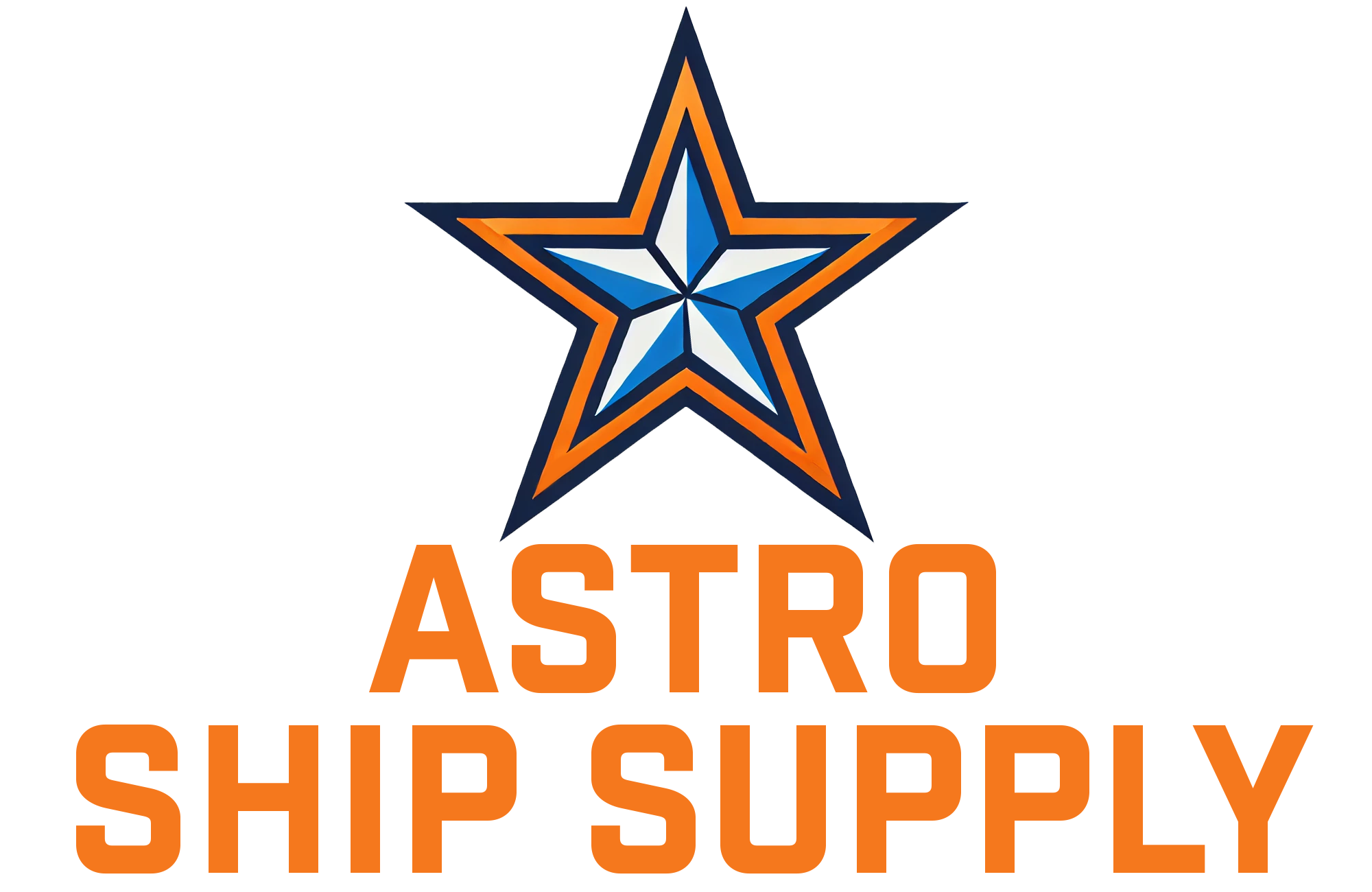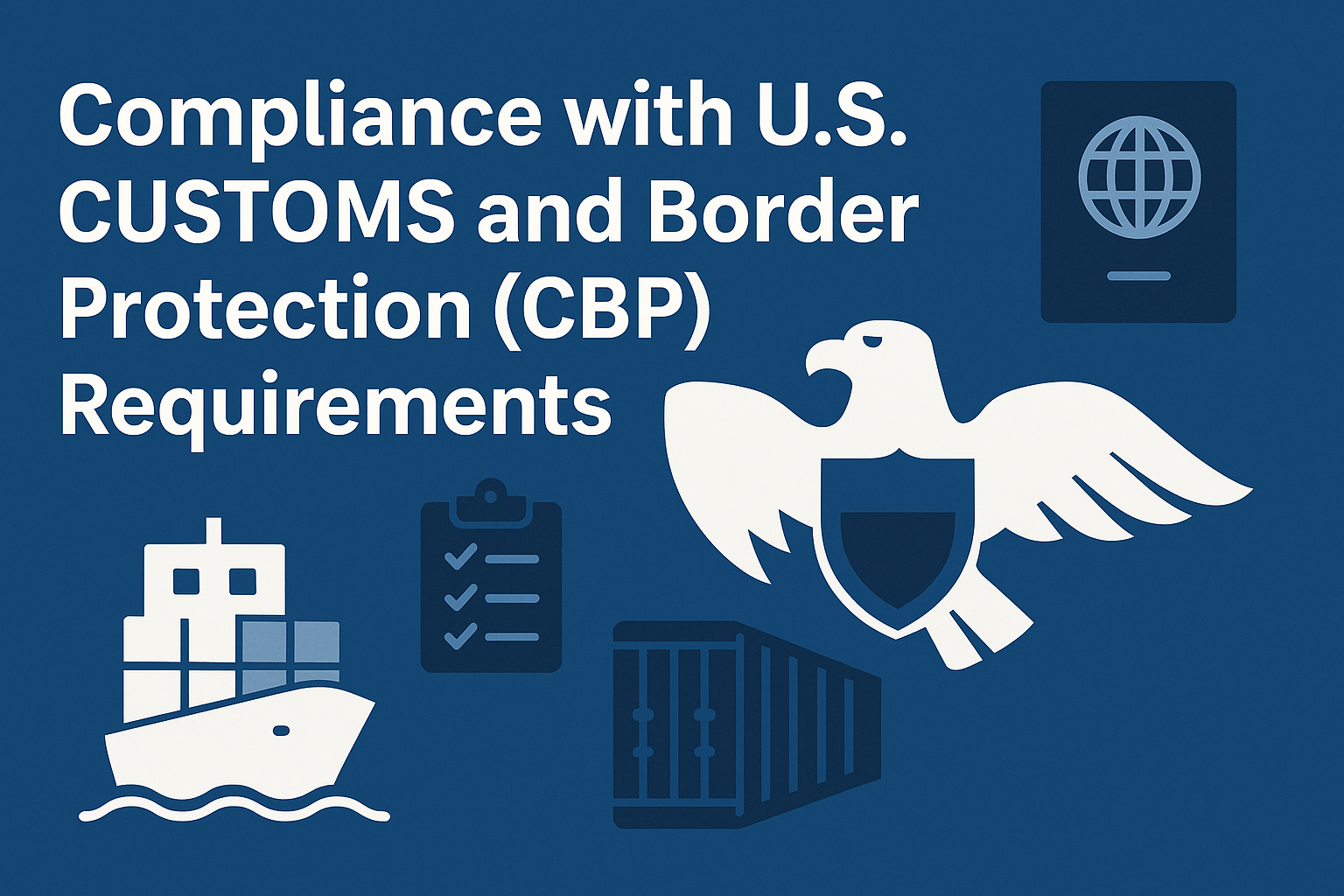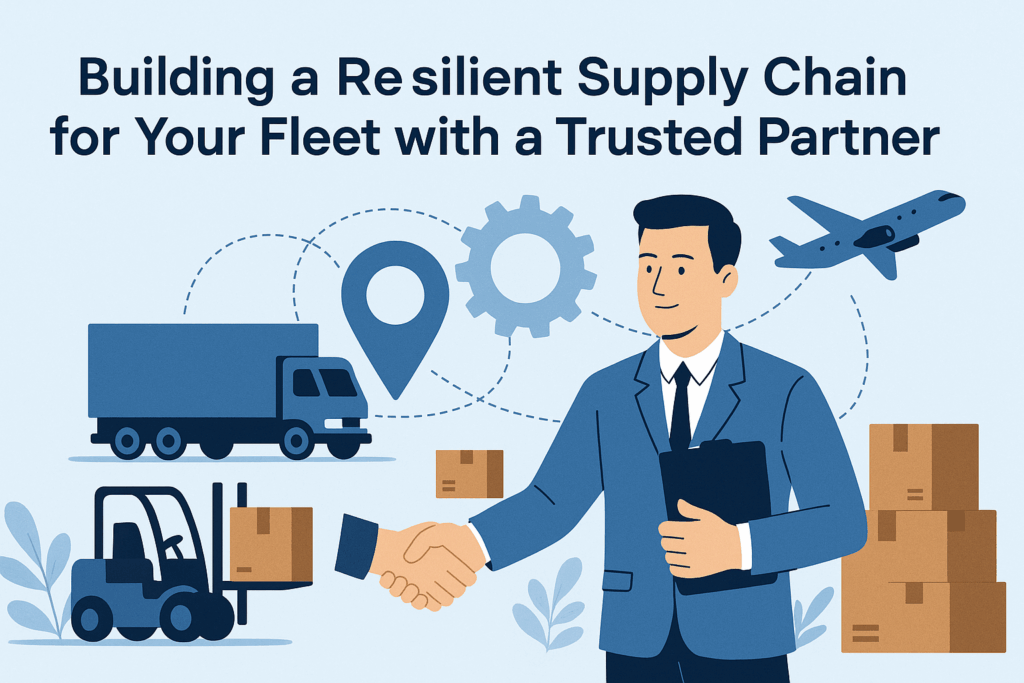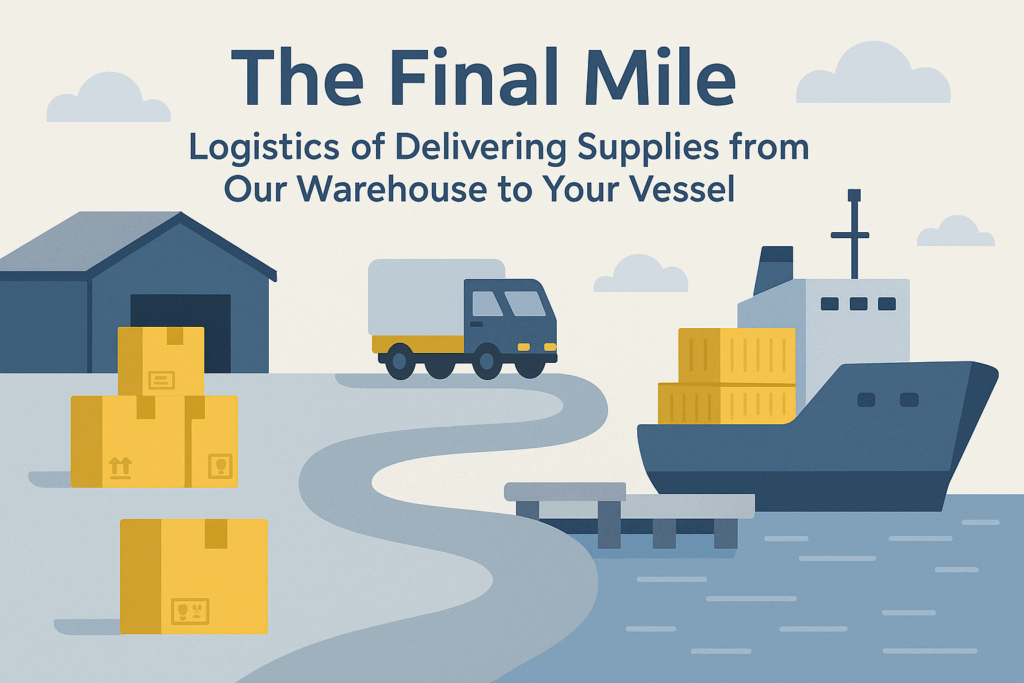The Crucial Role of CBP Compliance in Modern Ship Supply
For any vessel calling at a U.S. port, interacting with U.S. Customs and Border Protection (CBP) is a non-negotiable reality. For ship chandlers like Astro Ship Supply, ensuring seamless compliance with CBP requirements isn’t just good practice – it’s fundamental to our operations and, crucially, to the efficiency and success of yours. Non-compliance isn’t merely an administrative headache; it can lead to significant delays, hefty fines, seizure of goods, and long-term reputational damage for both the supplier and the vessel.
Understanding and meticulously adhering to these regulations is paramount. It ensures that provisions, bonded stores, technical supplies, and cabin essentials reach your vessel promptly and without incident, keeping your operations on schedule and your crew well-supported. In the fast-paced maritime world, delays measured in hours can translate to substantial operational costs and disruptions.
Key Areas of CBP Focus for Ship Chandlery
CBP’s oversight touches multiple facets of ship supply. Mastering these specific areas is critical for a compliant chandler:
Accurate Declarations: The Foundation of Compliance
This is arguably the most critical aspect. Every item delivered to a vessel must be accurately documented and declared. This includes:
- Ship’s Stores Declaration (CBP Form 1303): Details all articles intended for consumption or use on board, including provisions, maintenance supplies, and cabin stores. Accuracy and completeness are non-negotiable.
- Crew’s Effects Declaration (CBP Form 1304): While primarily the crew’s responsibility, suppliers must ensure their deliveries don’t inadvertently cause issues with crew declarations.
- Cargo Manifests: If the chandler is delivering items considered cargo, appropriate manifests must be filed.
- Distinguishing Bonded vs. Domestic Goods: Clearly differentiating between duty-free (bonded) items and duty-paid (domestic) goods is essential for correct declaration and handling.
Long-tail focus: Mastery of “accurate bonded store declaration CBP” procedures is a hallmark of a reliable ship chandler.
Meticulous Bonded Stores Management
Bonded stores (duty-free items like tobacco, alcohol, and luxury goods) are subject to stringent CBP control. Key compliance points include:
- Secure Storage: Maintaining items in a CBP-approved bonded warehouse before delivery.
- Proper Sealing: Ensuring goods are sealed according to CBP regulations upon delivery to the vessel. Tamper-evident seals are crucial.
- Accurate Record Keeping: Maintaining detailed logs of all bonded inventory received, stored, and delivered.
- Direct Delivery Supervision: Often requiring supervision during transfer from the warehouse to the vessel to prevent diversion.
Failure here can result in duties and taxes being levied, plus significant penalties.
Awareness of Prohibited and Restricted Items
Chandlers must be vigilant about not supplying items prohibited or restricted by CBP or other U.S. agencies (like the USDA or FDA). This includes:
- Agricultural Products: Strict rules apply to certain meats, fruits, vegetables, and plant materials to prevent pests and diseases. Sourcing from approved suppliers and understanding regulations (e.g., regarding wood packaging materials under ISPM 15) is vital.
- Narcotics and Contraband: Robust internal controls are needed to prevent inadvertent inclusion.
- Weapons and Munitions: Subject to specific licensing and declaration requirements.
A compliant supplier stays updated on these ever-evolving lists and ensures their provisions and food supplies meet all import standards.
Vessel Entry and Clearance Procedures Interface
While the vessel’s agent primarily handles entry and clearance, the ship chandler’s activities directly impact this process. Timely and accurate submission of store lists and declarations is critical input for the agent’s filings, such as the electronic Notice of Arrival/Departure (eNOAD) via the Advanced Passenger Information System (eAPIS). Delays or inaccuracies from the chandler can cascade, delaying the vessel’s clearance.
Common CBP Compliance Pitfalls and How to Avoid Them
Even experienced operators can encounter issues. Awareness is the first step to avoidance:
Top Compliance Challenges:
- Inaccurate or Incomplete Paperwork: Simple errors, missing quantities, or vague descriptions.
- Undeclared Items: Especially common with ‘extra’ or ‘gift’ items added last minute.
- Broken or Improper Seals on Bonded Stores: Raising immediate red flags for CBP.
- Late Submission of Declarations: Missing CBP deadlines for electronic filing.
- Misunderstanding Specific Port Requirements: Regulations can have local nuances.
- Failure to Segregate Bonded/Domestic Goods Properly: Leading to declaration confusion.
- Lack of Crew Awareness: Crew unknowingly accepting undeclared items from suppliers.
Comparative Impact: Compliance vs. Non-Compliance
The difference meticulous compliance makes is stark:
| Aspect | Compliant Scenario (e.g., Using Astro Ship Supply) | Non-Compliant Scenario |
|---|---|---|
| Delivery Time | Supplies delivered alongside or shortly after vessel clearance. Minimal delay. | Significant delays pending CBP inspection, document correction, or investigation. Potential detention of goods or vessel. |
| Costs | Predictable supply costs. Avoidance of fines and penalties. | Potential for substantial fines, penalties, added duties/taxes, demurrage charges, legal fees. |
| Operational Efficiency | Smooth integration into vessel operations. Crew receives needed supplies promptly. | Disruption to vessel schedule, crew morale impacted, potential need for emergency local purchases at higher costs. |
| CBP Relationship | Builds trust, potentially leading to expedited processing in the future (e.g., participation in trusted trader programs). | Increased scrutiny on future port calls, higher likelihood of intensive inspections, damaged reputation. |
| Reputation | Reinforces image of a professional, reliable operation. | Damages reputation with authorities, charterers, and potentially insurers. |
Best Practices for Ship Chandlers: The Astro Ship Supply Commitment
Ensuring consistent CBP compliance requires a multi-faceted approach, deeply embedded in our operational DNA:
Rigorous Internal Processes & Training
Our team undergoes regular training on the latest CBP regulations, documentation requirements, and commodity-specific rules (like HACCP for food safety, which aligns with CBP’s expectations for safe provisions). We utilize detailed checklists and standard operating procedures (SOPs) for every stage, from order intake to final delivery, ensuring accuracy and accountability. Our commitment to quality management (ISO 9001:2015) underpins these processes.
Technology-Driven Accuracy and Record Keeping
Leveraging modern inventory and order management systems minimizes manual errors in documentation. We maintain meticulous, easily accessible records of all transactions, declarations, and communications related to CBP, ready for audit or inspection. This includes tracking seal numbers for bonded goods and verifying supplier compliance documentation.
Thorough Supplier and Supply Chain Vetting
Compliance extends upstream. We carefully vet our own suppliers, particularly for provisions, ensuring they meet U.S. standards (FDA, USDA) and provide necessary documentation. This prevents issues with restricted agricultural items or non-compliant food products entering the supply chain.
Proactive Communication and Collaboration
We believe in open lines of communication. We work closely with vessel masters, chief stewards, and ship agents well before arrival to confirm order details, clarify requirements, and ensure all necessary information is gathered for timely declaration submission. Any potential issues are flagged early. Need assistance? Contact us 24/7.
Case Scenario: The Tangible Difference of CBP Compliance
Consider two similar vessels arriving in Houston:
Vessel Alpha uses a less experienced chandler. Their bonded stores list is submitted late and contains discrepancies in quantities. A pallet of fruit lacks proper origin documentation. Upon arrival, CBP flags the late submission and inconsistencies. An intensive inspection is ordered for the stores. Officers identify the undocumented fruit (potential agricultural violation) and discover discrepancies between the bonded list and physical count. The vessel faces several hours of delay, the problematic fruit is confiscated, a penalty is issued for the declaration errors, and the crew’s access to their bonded items is delayed. Total operational time lost: 8 hours, plus fines.
Vessel Bravo partners with Astro Ship Supply. Days before arrival, Astro confirms the full order, verifies bonded item quantities meticulously, ensures all provisions meet USDA/FDA requirements, and prepares the CBP Form 1303 accurately. All documentation is provided to the ship’s agent well ahead of the CBP deadline. Upon arrival, CBP reviews the pre-filed, accurate documentation. A routine check confirms seals are intact and quantities match. Supplies are cleared quickly alongside the vessel’s main clearance. Crew receives provisions and stores without delay. Total operational time lost related to chandlery: Minimal. Vessel departs on schedule.
This scenario highlights how choosing a compliant partner directly impacts the bottom line through efficiency and risk avoidance.
Why Your Choice of Chandler is a Strategic Compliance Decision
Partnering with a ship chandler deeply committed to CBP compliance, like Astro Ship Supply, is not just about convenience; it’s a strategic move to:
- Mitigate Financial Risk: Avoid costly fines, penalties, and unexpected duties.
- Ensure Operational Timeliness: Prevent delays that disrupt tight shipping schedules.
- Protect Your Reputation: Maintain a positive record with U.S. authorities.
- Free Up Resources: Allow your crew and agents to focus on core vessel operations, not fixing supply compliance issues.
- Guarantee Supply Integrity: Ensure the goods received are exactly what was ordered and permissible for entry.
Our adherence to CBP rules, alongside certifications like ISO 9001:2015 and HACCP, demonstrates a holistic commitment to quality, safety, and regulatory integrity. Explore our commitment further.
Frequently Asked Questions (FAQ) about CBP Compliance
What exactly are “bonded stores” in the context of ship supply?
Bonded stores refer to goods delivered to a vessel that are exempt from customs duties and taxes because they are intended for consumption or use by the crew and passengers outside the territorial waters of the country where they were purchased. Common examples include alcohol, tobacco, cigarettes, perfumes, and some electronics. They must be kept under seal while the vessel is in port or territorial waters and accurately declared to CBP.
What are the most common consequences of errors on a CBP declaration for ship supplies?
Consequences range from simple delays while corrections are made, to monetary penalties (which can be substantial, especially for bonded goods discrepancies), seizure of the non-compliant goods, increased scrutiny on future port calls, and in severe cases, detention of the vessel. Intentional misdeclaration can lead to criminal charges.
How long does CBP clearance typically take for ship supplies?
If all documentation is submitted correctly and on time, and there are no red flags, the clearance for ship supplies often occurs concurrently with the vessel’s main entry clearance. However, if CBP selects the supplies for inspection or finds documentation issues, it can add hours or even days to the process, depending on the severity and complexity of the issue.
What is the ship chandler’s primary responsibility regarding CBP compliance?
The chandler’s primary responsibilities are to ensure the accuracy and timeliness of all declarations related to the goods they supply (especially CBP Form 1303), manage bonded stores according to regulations (including secure storage and proper sealing), prevent the supply of prohibited or restricted items, and maintain meticulous records. They act as a crucial link in the compliance chain, ensuring the goods delivered meet all U.S. requirements.
How can Astro Ship Supply help ensure my vessel remains compliant with CBP?
Astro Ship Supply prioritizes CBP compliance through rigorous internal training, strict adherence to documentation protocols, use of technology to ensure accuracy, careful vetting of our own suppliers, secure handling of bonded stores, and proactive communication with your vessel and agent. Our experience in the Port of Houston and Gulf Coast region means we understand local nuances and maintain a strong focus on meeting all regulatory demands seamlessly. Request a quote to experience the difference.
Your Partner for Confident Navigation Through U.S. Customs
Compliance with U.S. Customs and Border Protection requirements is a complex but essential part of maritime operations in the United States. Choosing a ship chandler that not only understands but excels in navigating these regulations is vital for efficiency, cost-effectiveness, and peace of mind. At Astro Ship Supply, CBP compliance is woven into the fabric of our service.
We are dedicated to ensuring every delivery meets the highest standards of accuracy and regulatory adherence, allowing your vessel to operate smoothly and stay on schedule. Let us handle the complexities of customs compliance, so you can focus on the journey ahead.
Ready for seamless, compliant ship supply services in Houston and the Gulf Coast? Request your quote today and partner with Astro Ship Supply for excellence in every delivery.






